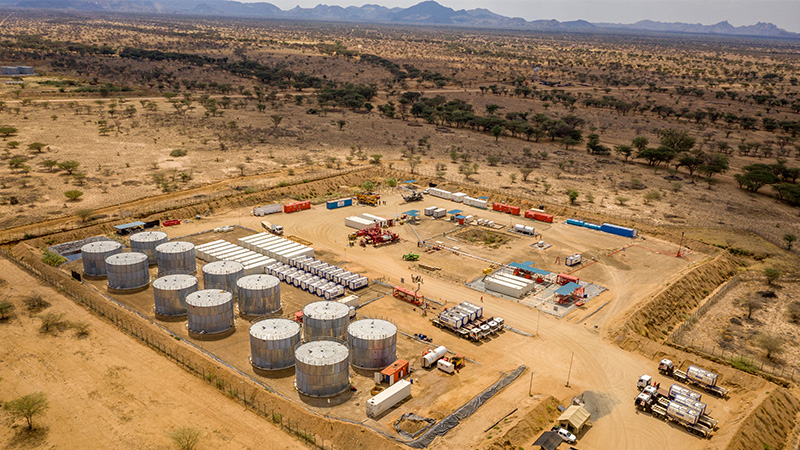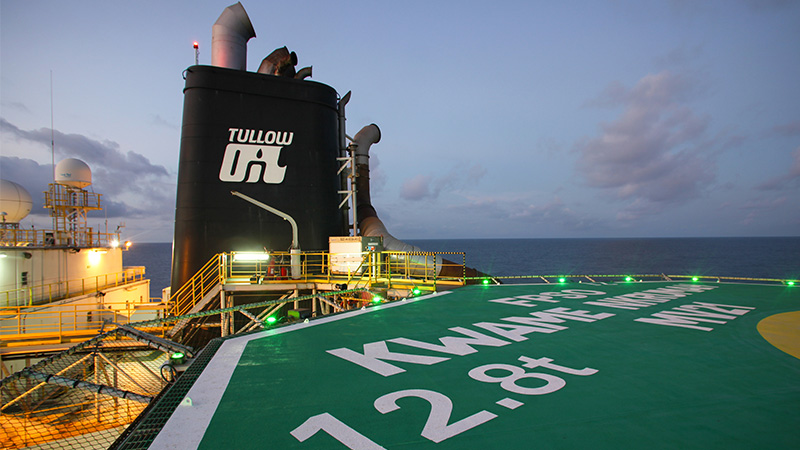Africa-focused oil explorer Tullow Oil Plc is in discussions with bondholders over refinancing a $1.3 billion bond maturing next year, as pressure mounts on the London-listed company to strengthen its balance sheet and reassure investors.
Analysts familiar with the matter say the talks have revolved around the company’s struggling performance and options for refinancing the bond, due in May 2026.
Some bondholders are understood to be working with U.S. law firm Weil, Gotshal & Manges LLP to prepare for more formal negotiations, including potential amendments to debt terms.
Neither Tullow nor Weil commented on the specifics of the discussions. However, a Tullow spokesperson told Bloomberg News: “We are making good progress with plans to refinance and simplify the group’s capital structure during 2025.”
Tullow’s refinancing challenge comes against the backdrop of weakening performance and high leverage.
Corporates generally seek to refinance bonds 12 to 18 months ahead of maturity, but Tullow’s timeline is already tightening, leaving the company little room for error.

The company has been burdened by heavy debts for years after embarking on ambitious development projects in Africa, including major discoveries in Ghana, Uganda, and Kenya.
While the discoveries elevated Tullow to one of the UK’s most celebrated independent oil explorers in the late 2000s, the cost of developing these fields has weighed heavily on its finances.
By June 30, the company’s drawn debt stood at $1.8 billion, with the senior secured bond alone accounting for about $1.3 billion.
The looming repayment deadline has drawn warnings from Moody’s Ratings and S&P Global Ratings, both of which recently downgraded Tullow, citing refinancing risks.
Asset Sales and Production Concerns

To ease pressure, Tullow has embarked on a series of asset sales. Earlier this year, the company completed a $300 million sale of its Gabonese assets, and it expects to secure $80 million from the disposal of its Kenyan operations to Gulf Energy Ltd before the end of 2025.
While these sales provide much-needed liquidity, analysts warn they could also affect Tullow’s production levels.
The company has already signaled that full-year output may slump, news that drove its shares to their lowest point since 2020 earlier this month.
Tullow’s struggles in Kenya have been particularly costly. Despite significant discoveries, the firm was unable to bring the fields onstream, eventually choosing to divest the deposits entirely. This marked a significant retreat from its East African ambitions, narrowing its production base.
Founded in 1985, Tullow Oil rose to prominence after a string of successful African discoveries, including the Jubilee Field offshore Ghana, one of the continent’s most significant deepwater finds.
At its peak, the company was hailed as a model of independent exploration success, drawing significant investor interest.

But its fortunes changed as project delays, weaker oil prices, and rising debt obligations undermined growth.
The challenges in Kenya and cost overruns in other operations left Tullow with limited cash flow flexibility.
Now, with less than nine months to refinance its $1.3 billion bond, the company faces a defining moment. A successful restructuring could stabilize operations and allow it to focus on production growth, while failure could heighten default risks.
Despite the challenges, Tullow insists it remains committed to long-term value creation. “We are simplifying the capital structure and focusing on our core assets,” the company said in its recent financial update.
As the countdown to May 2026 continues, the outcome of these refinancing talks may determine whether Tullow Oil can regain its footing—or whether one of Africa’s most prominent explorers will face an uncertain future.
READ ALSO: Ghana Set to Smash All 2025 Economic Targets – IC Research Hails Strong H1 Performance























